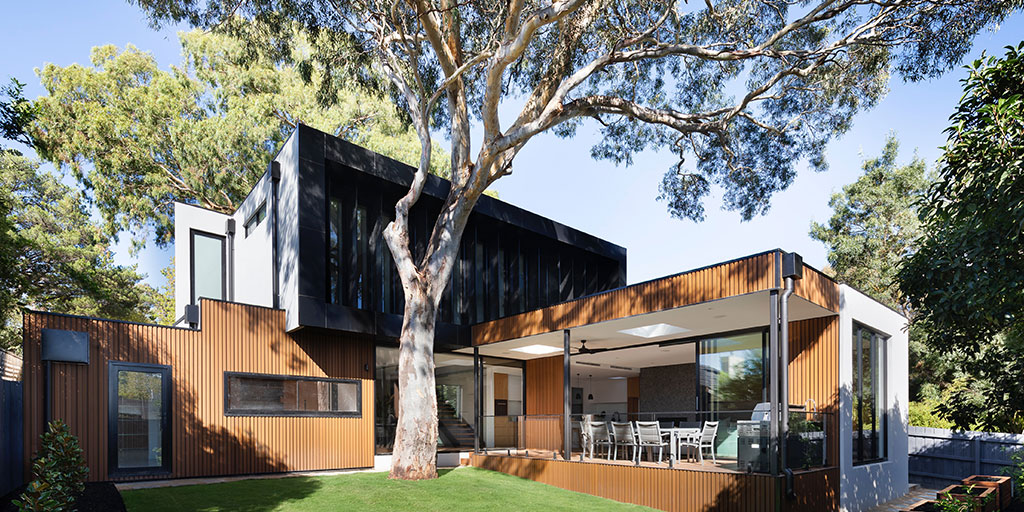Imagine: Unlimited and reasonably-priced parking—why the Great Australian Dream should be regional
- Last Updated : June 12, 2023
- 455 Views
- 6 Min Read

2020 was abnormal in every sense. As we all locked down to help curb the spread of Coronavirus, most of us city-dwellers set up makeshift offices in our homes. However, kitchen tables and spare room corners don't do well as office alternatives for long. We needed more space.
Unsurprisingly, migration from CBDs to regional Australia in 2020 was at its highest in 20 years. Sydney alone had more than 30,000 people move out while Melbourne lost over 26,000 people, reaching a record for annual net population loss... a first for Victoria.
The Great Australian Dream
What is surprising, however, is that in all that time, our home ownership ambitions haven't dwindled at all. Subsidised bank loans and commute savings have empowered our working class to invest in properties. Real estate is arguably the only industry that flourished during the pandemic (apart from toilet paper and sanitiser manufacturers), albeit significantly evolving. Instead of making down payments for a “stylish two bedroom apartment with gorgeous city views,” people are gravitating towards “two-storey four-bedroom houses with a back yard and a double driveway.” If you do the price math, a regional paradise isn’t much different from watching Vivid Sydney from the 13th floor.
Until a few months ago, we all assumed we’d seen the worst of Covid, though fully aware that our worst had still been so much better than the rest of the world. And yet, as the situation in NSW has proven, this pandemic isn't a 2-year lease. The virus mutates so quickly and wildly that even with decent vaccination rates, we should expect to live knowing that it may never completely vanish. The normal of the past is truly past. Now every time you buy tickets for a concert or a movie, you’ll have a voice in the back of your head reminding you to sanitise, wash your hands, and carry a mask—just in case.
Crowded city dwelling is no longer attractive
Most of us choose city living because we don’t want to spend an hour or two in traffic every day. However, with remote work becoming mainstream, people are realising that they no longer have to live in the CBDs to work effectively. And when cities lock down, it doesn’t matter whether we live 500 metres from the office or 50 kilometres.
I live 1100 kilometres from our Gold Coast office, and I'm still as productive as I would be sitting on a company-sponsored desk. The best part—I have a well-ventilated room for myself where I can join meetings, listen to music as I type away, and still hear the magpie larks in my garden demanding a feed. My biggest concern? Not scheduling meetings for the pre-sunset hour, because the cockatoos would drown everyone’s voices. Honestly, that’s not a bad deal at all.
More and more Australians agree with me. With property prices steadily increasing in capital cities, it’s making less sense to pour a chuck of our life’s savings and earnings into long-term mortgages.
These simple rationales have sparked a wave of internal migration, making regional Australia more inviting than ever. After all, if it’s good enough to holiday there, wouldn't it be great to live there?
Andrew Jolliffe, the managing director for HTL Property, recently told The Australian that they “have been selling a pub a day for seven days, not only in cities but regional areas also.”
Regional Australia is no longer off-grid and inaccessible. Even if lockdowns again slow things down, it won’t stop our regional towns from boosting their livability quotient.
The unrealistic case for a CBD office
As people started working from home, offices were left empty. When we were still covid novices, we assumed this change would be temporary and we could all go back to the water coolers and continue to perpetuate stereotypes. Now however, we know that offices don't really need multiple ping pong tables and recreation pods. We might even have rules against having more than 10 people per team in the office at the same time.
When lockdowns extended, companies naturally started cutting costs. About time, too; those Harbour side offices don’t come cheap. Lease prices can go from $1400/week to as much as $15,000/week depending on capacity and location. With the one-person-per-2-square-metres rule, you’d need a much bigger space than you would’ve two years ago. Not to forget that if our on-again-off-again relationship with lockdowns continue (and let’s face it, it probably will), you’d likely be paying rent for most of the year—for an empty space.
Unless…
You’re worth 65.7 billion US dollars on Nasdaq and can splurge $1.4 billion on a 40-storey tower in Sydney’s Central Station precinct. Atlassian recently made the news when it announced its new headquarters. It also raised eyebrows, obviously, but not just for rocking up to an already congested city. Atlassian is known for its WFH-friendly policies. The company was almost fully remote even before remote became our unprecedented reality. And yet, they’ve now taken on a 15-year lease to build a skyscraper in the heart of Australia. I hope they thought it through (it’d be one hell of a regret otherwise), but it’s unfathomable why they did it at this supremely critical time.
It’s critical because the Australian Housing and Urban Research Institute tells us that the average first-home owner is now in their late 30s. Thanks to remote work and incredibly low mortgage rates in CBDs, these sensible adults are choosing regional properties—not just for the price, but also because in five years’ time, they'll have paid off most of their mortgages and can focus on providing for their families. It’s the dream life: a successful career, own home, a comfortable lifestyle for pre-teen kids, and plenty of after-work activities to look forward to.
You can’t do that in most major cities. The further we move away from cities, the better our chances are of lowering costs of living, increasing savings, and envisioning a future that’s more ambitious than just having a balcony garden.
At 45, if it comes down to choosing between a comfortable regional home for their kids and a moderately-uncomfortable apartment in the Central Station precinct, most people would choose the former. You don’t need to be a scientist to know that.
So what’s the point of oversized city offices?
None, really. And we at Zoho know this better than many other companies.
About ten years ago, we opened our first regional office in Tenkasi, India, a small town surrounded by waterfalls and natural forests, and home to about 70,000 people. The response from our employees was phenomenal. Many of them had relocated to the big city from small towns. They were more than happy to move out of their one-bedroom studios and share houses, and back into their home towns to live closer to family and the natural landscape. Today, more than 500 of our employees work from our Tenkasi office.
"The concentration of jobs in urban cities has taken away talented youth from the villages where they are most needed.”
That’s Zoho’s CEO, Sridhar Vembu.
We don’t see the point of extracting high-quality talent from places that need it just to move itinto impossibly saturated housing markets. Not only does this make it hard for people to find houses, save up for the future, and enjoy their hard-earned income, but it also forces them to compete against their peers—in the most unhealthy way. We have a lot of talented people, and by making them all move into metropolitan cities, we’re creating an influx of working population, but with an increase that’s disproportional to the jobs created in these cities. The result is unnecessarily bloated unemployment rates, skyrocketing cost-of-living, and lots of congestion and traffic. If we create more jobs in regional areas, we’ll have better economic growth in those areas and employ a larger number of people. What’s not to like about that?
Today, Zoho has offices in more than 15 rural areas across India, with many more planned. And while the pandemic accelerated this initiative, it had already been on our roadmap for years. Our employees now meet in offices in their home towns, collaborate, and build personal connections, all while staying safe. Our US head office has also moved to small town (Del Valle, Texas) with green valley views and where our colleagues have seen their farming skills blossom. We want to do the same in Australia. And in Singapore. And in Europe, and everywhere else we set up offices.
If more businesses look at the real estate industry objectively and put their employees’ future ahead of their branding egos, we won’t be as hard-pressed for space as we are now. Finding a full-day parking spot in the CBD that doesn’t cost an arm would be the least of our worries. Imagine!


